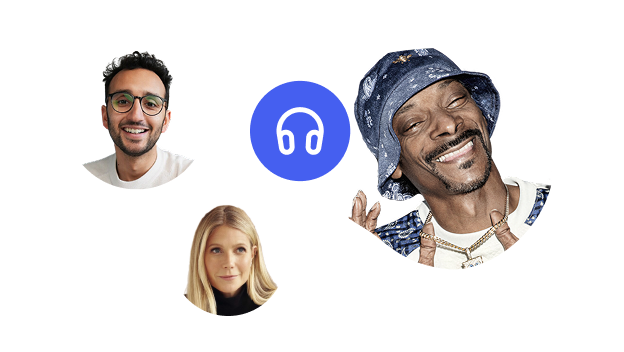With the continued development and refinement of artificial intelligence (AI) and deep learning technologies, the concept of voice cloning, or creating a high-quality synthetic voice that matches a person's voice, has moved from the realm of science fiction to reality.
Can We Recreate a Human Voice?
Yes, we can recreate the human voice using AI technology, specifically deep learning and neural networks. This voice cloning technology works by creating a voice model from a target voice. An algorithm analyzes the characteristics of the target voice from an audio recording, then generates a voice that closely matches those characteristics. This technology has seen extensive use in text-to-speech systems, chatbots, and other AI applications.
How Long Does It Take to Clone a Voice?
The duration it takes to clone a voice can vary based on the quality of the original voice recording and the sophistication of the AI and deep learning tools used. Typically, a few minutes of high-quality voice data can be sufficient to create a basic model. However, to generate a more authentic and high-quality cloned voice, several hours of voice data may be required.
How Much Does it Cost to Clone a Voice?
The cost of cloning a voice is not fixed, as it depends on the software used, the amount and quality of voice data, and whether you're doing it yourself or hiring a professional. Some voice cloning software offers free trials, but for extensive usage and access to more advanced features, prices may range from a few dollars a month to hundreds for professional-grade tools.
Can We Clone a Voice that is not on the Internet?
Yes, as long as there's an audio recording of the voice, it can be cloned. The voice does not have to be on the internet. Voice cloning technology works by analyzing the audio clip of the target voice, not by searching the internet for voice data.
What are the Difficulties in Cloning a Voice?
Cloning a voice presents several challenges. One is obtaining a high-quality recording of the target voice. Background noise and poor audio quality can make it harder for the AI to analyze the voice. Secondly, replicating the unique nuances, like emotion and intonation, in a person's voice is difficult. Lastly, ethical and legal issues arise from the potential misuse of cloned voices.
How is the Voice Cloned?
The process of voice cloning involves multiple stages. The first is the recording of the target voice, which should be as clear and high-quality as possible. The audio is then preprocessed to remove noise. The refined audio data is fed into a deep learning model, which extracts features and creates a voice model. This model can then be used in a text-to-speech system to generate the cloned voice.
Who Would Benefit from Cloning a Voice?
Various sectors can benefit from voice cloning technology. Content creators could use cloned voices for voiceovers in videos and podcasts or dubbing in different languages. Audiobook producers could use it to create books in the author's own voice. Game developers might use it to create custom voice lines for characters. Moreover, it has applications in assistive technology, helping individuals who've lost their voice communicate in their original voice.
What Information is Needed to Clone a Voice?
The essential information needed to clone a voice is a high-quality audio recording of the target voice. The recording should ideally contain a range of sounds and speech patterns to help the AI understand the full spectrum of the voice.
Speechify Studio - #1 Voice Cloning Tool
Speechify Studio’s AI voice cloning lets you create a custom AI version of your own voice—perfect for personalizing narration, building brand consistency, or adding a familiar touch to any project. Simply record a sample, and Speechify’s advanced AI models will generate a lifelike digital replica that sounds just like you. Want even more flexibility? The built-in voice changer allows you to reshape existing recordings into any of Speechify Studio's 1,000+ AI voices, giving you creative control over tone, style, and delivery. Whether you’re refining your own voice or transforming audio for different contexts, Speechify Studio puts professional-grade voice customization at your fingertips.



